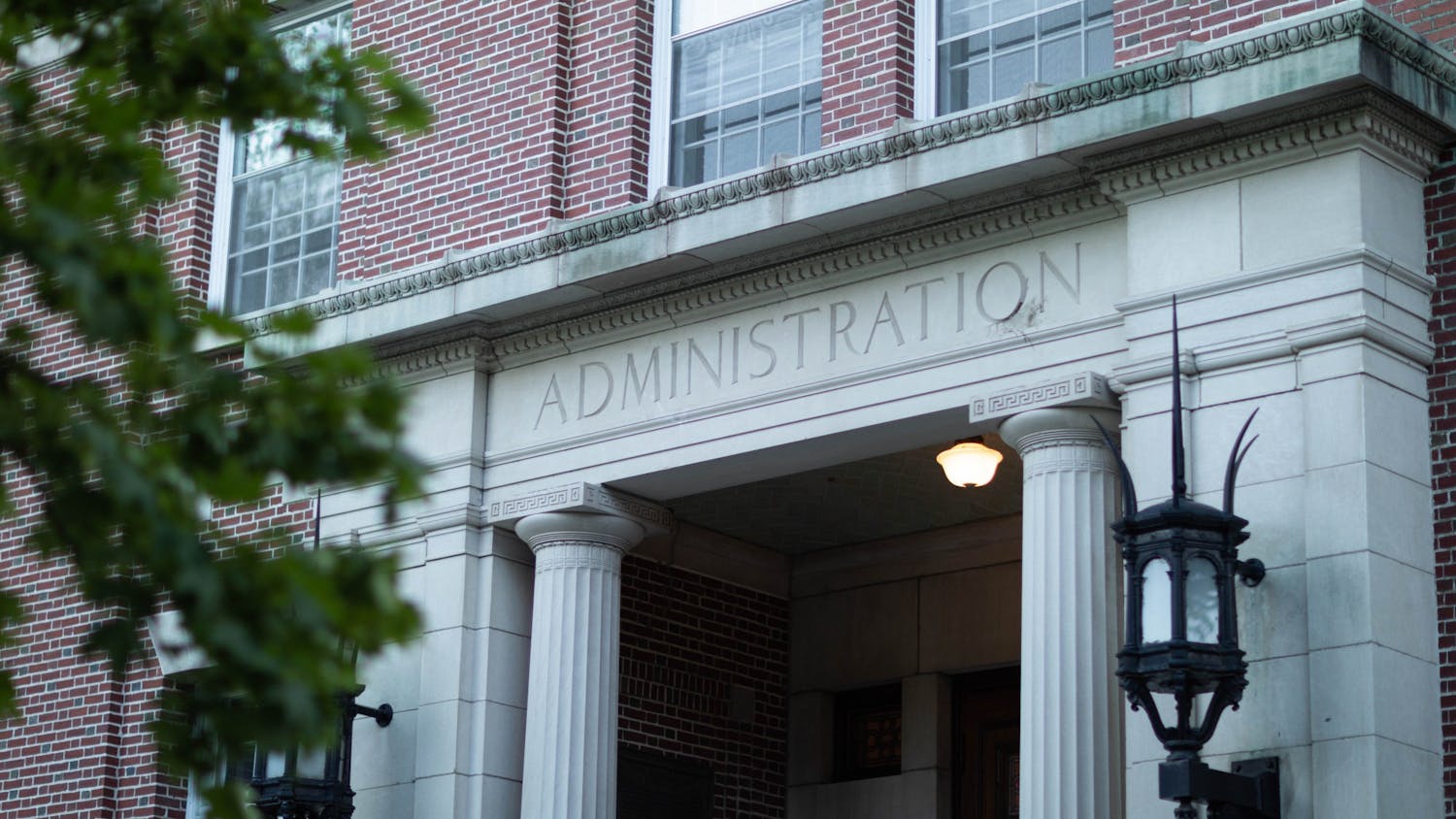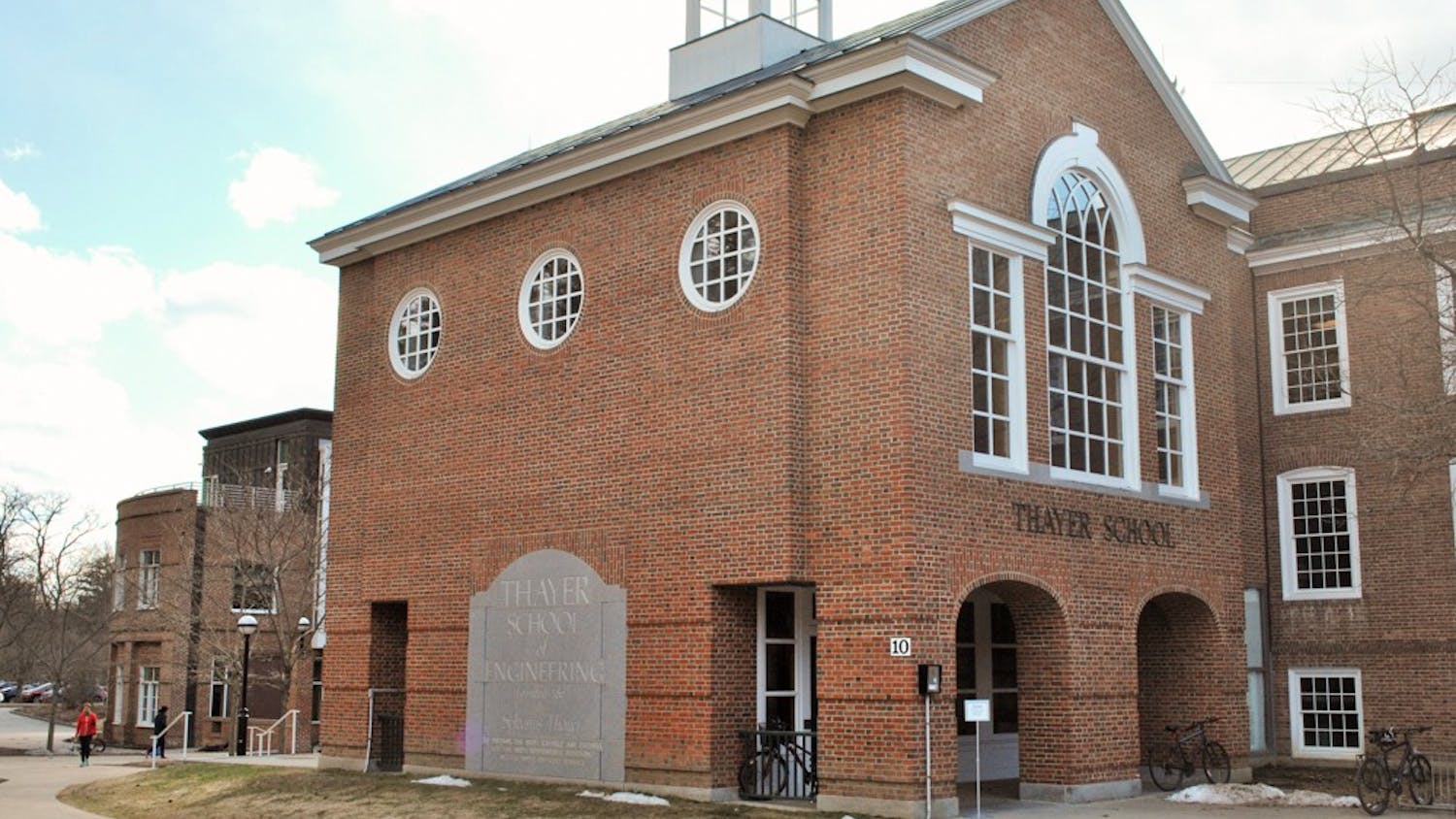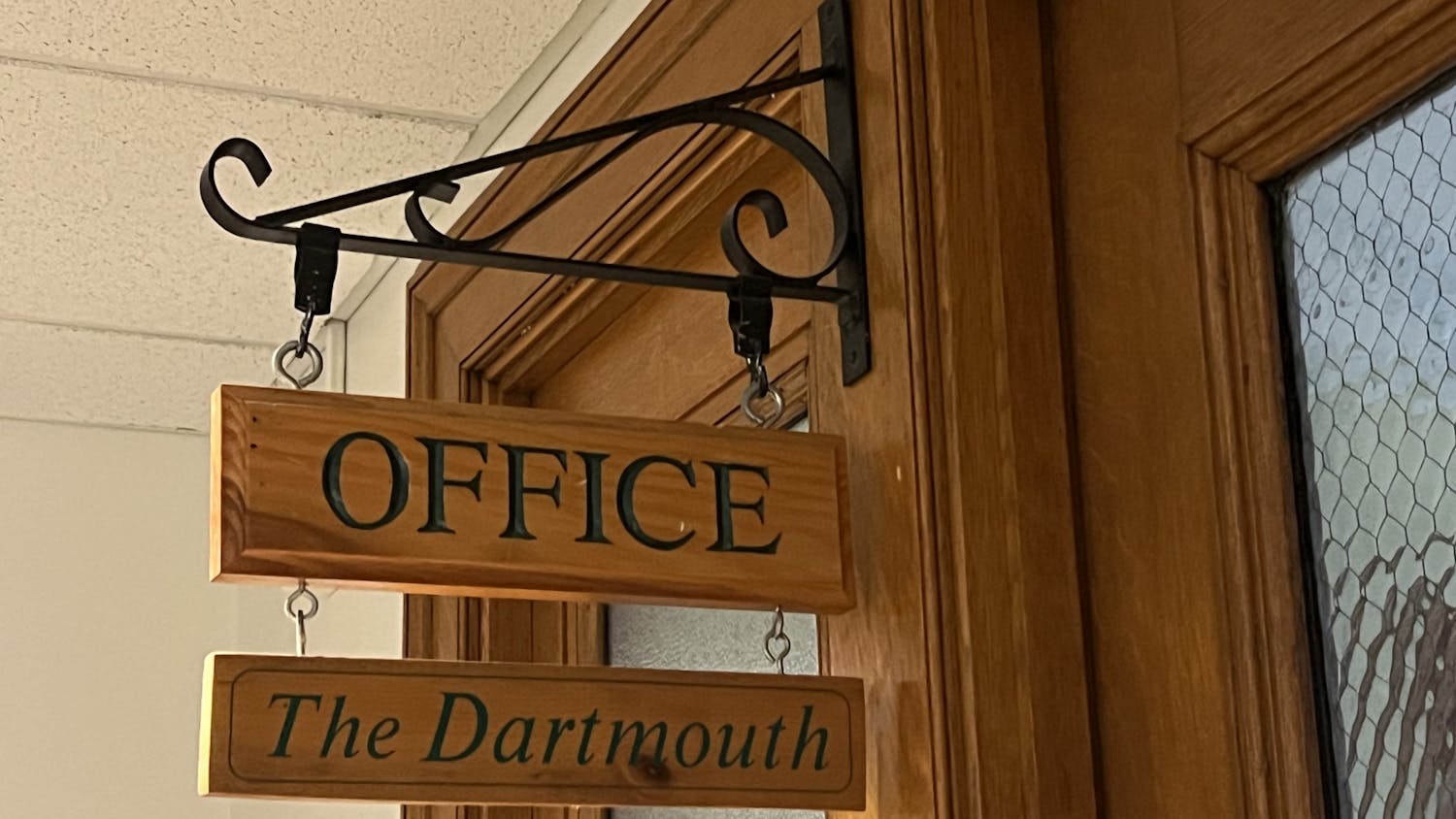President Bill Clinton will deliver the keynote address to the Class of 1995 this Sunday at the College's 225th Commencement, an event that is expected to be attended by more than 16,000 College alumni, faculty, parents and guests at Memorial Field.
Clinton is the second sitting U.S. president to deliver the College's Commencement address. President Dwight D. Eisenhower spoke in 1953, when he delivered the now-famous speech in which he condemned racial discrimination, McCarthyism and censorship.
Clinton's speech comes at a critical juncture for the United States, the world and his presidency. In his speech, Clinton will reportedly present his recommendations for achieving peace and prosperity by the turn of the century.
"I don't think that we have focused enough on the kind of things we have to do to preserve opportunity, to raise incomes, to deal with the security challenges to America on the edge of the 21st century," Clinton told local radio stations last month. "That's what I'm going to talk to the Dartmouth grads and to the people of New Hampshire about."
In a March press release, White House Press Secretary Mike McCurry said the speech will offer Clinton the opportunity to present his ideas for preparing the nation for the future in the areas of domestic policy, economic policy and national security.
Clinton "will describe the opportunities a changing society offers to American families and workers," McCurry wrote. "In addressing each of these transitions, President Clinton will highlight his New Covenant vision for leading America into the coming century."
The "New Covenant" is the Clinton administration's name for its domestic, economic and national security policies. However, if Clinton holds to previous form, it is unlikely that he will discuss the New Covenant with the Class of 1995.
Clinton and Dartmouth
In an exclusive interview with The Dartmouth, Clinton described his relationship with College President James Freedman.
"Jim and I have been friends for some time," Clinton wrote to The Dartmouth via facsimile. "Jim is an exceptional person and he and his wife Sheba are good friends of ours."
"Jim challenges people -- whether it be the young men and women at Dartmouth or those he meets at his favorite bookstores -- to dedicate themselves to a life of learning," Clinton wrote. "He has inspired Dartmouth not only academically, but also through his endless drive to promote the importance of public service and responsibility."
In a March interview with The Dartmouth, Freedman said he was excited to have Clinton speak at Dartmouth's Commencement. "It's a great honor," Freedman said. "Of all the private institutions, Clinton has chosen to speak at ours."
Freedman said he found out Clinton would speak at Commencement around March 8, when a spokesman for Clinton called Freedman to inform him that the President had accepted Dartmouth's invitation.
"I knew he wanted to do it," Freedman said at the time. Freedman, who is currently on a six-month sabbatical, has returned to Hanover this weekend to preside over the Commencement ceremonies.
Clinton wrote he was looking forward to speaking at Dartmouth and seeing Freedman.
"When I think of Jim, I think of his love of people, for books and good conversation," Clinton wrote. "I look forward to seeing him at the Dartmouth Commencement ceremonies and meeting the graduates."
Although Clinton was invited to deliver the Commencement address for the Class of 1994, the President was unable to attend because he was in Europe to commemorate World War II. Secretary of Labor Robert Reich '68 delivered last year's address.
History Professor Gene Garthwaite, who chairs the faculty's Council on Honorary Degrees, said a main reason behind the invitation to Clinton was vocal interest from various campus groups, especially the student body.
The council, which is composed of faculty from the College and the three professional schools and the senior class president, recommends candidates to the College Board of Trustees to receive honorary degrees. The Trustees have final approval on honorary degrees.
"Students will always remember that the President spoke at their Commencement," Garthwaite said in a March interview. "I imagine that students are really excited."
Garthwaite said much effort is put into convincing the President to accept a school's invitation to speak at Commencement. "It takes a lot of work," Garthwaite said. "After the invitation, you need a lot of coordination to keep the invitation in front of him."
Freedman, a personal friend of Clinton, wrote to the President in November asking him to deliver the Commencement address this June. Similarly, Eisenhower was invited in 1953 by then-College President John Sloan Dickey, a friend of Eisenhower.
Freedman said after he wrote Clinton, he saw the President at the Renaissance Weekend in Hilton Head, S.C., an annual gathering of leading American intellectual and cultural figures. Both Clinton and Freedman have attended the event for a number of years.
"I saw him on New Year's Eve and told him I hoped this was the year," Freedman said. "He said, 'We've got an awful lot of requests.'"
Political significance
Yet the significance of Clinton's visit to the College in a political context cannot be overlooked. Clinton faces a tough bid for re-election in 1996, and New Hampshire will host the first presidential primary in February.
"It's significant because it's the beginning of the New Hampshire political season," Government Professor Lynn Mather said. "But it's likely we would have gotten him anyway because he's friends with President Freedman."
"The timing is obviously more than coincidental," she added. Mather said any visibility for a candidate in New Hampshire before the primary is a good way to kick off the campaign.
But White House spokeswoman Laura Schwartz was quick to point out that Clinton's speech is directed toward the graduation and not his quest for re-election.
"This is not a campaign stop," Schwartz said. "This is the President of the United States making a Commencement address."
Speaker of the House Newt Gingrich, a conservative Republican from Georgia, is also in New Hampshire this weekend. Gingrich, who some people think may run for the presidency in 1996, is speaking to the Conference of New England Governors and is making a series of campaign-like stops throughout the state.
Clinton's speech also comes at a time when he must publicize his accomplishments as president and define his vision for the next four years if he is re-elected.
According to Time Magazine, Clinton's approval ratings rose to about 60 percent in the aftermath of the April 19 Oklahoma City bombing, due to the public's confidence in his performance.
Since last year, Clinton's ratings had remained stuck between 40 and 50 percent. Last fall, an angry electorate ushered a new conservative Republican majority into Congress.
This year, Clinton has focused on reasserting his presidential statesmanship by trying to both compromise with the GOP and curbing their more radical proposals, such as repealing the assault-weapons ban, instituting term limits for elected officials and protecting the rights of senior citizens, minorities and the working class.
But the question Clinton must answer, according to the March 13 issue of Time, is "what can Clinton do to convince voters he should be President for six more years instead of two?"
Political pundits say Clinton's goal for the rest of this term may be to survive until the fall without a major crisis and, with a few successful vetoes under his belt, establish himself as a plausible contender for his own title.
Other experts say Clinton's vision for next year's campaign will probably be a modified version of the old -- emphasizing deficit reduction and downsizing government while stressing government must not simply get out of the way, but create opportunities for all Americans.
Clinton and education
Clinton has continually made education one of the highest priorities of his administration, including a June 7 veto of a Republican bill that would cut spending on education.
"Republicans believe that education at the national level is just another area to cut and gut. I do not," Clinton wrote to The Dartmouth. "I will fight every step of the way efforts to harm education."
Clinton said Republican-proposed cuts would affect more than 4.9 million student borrowers and could increase undergraduate student loan repayments by 18 percent.
Clinton said students at Dartmouth could be affected by these proposed spending cuts.
"At a school like Dartmouth, students often borrow the maximum amount authorized by each year and would find themselves with a much higher student debt when they completed their education," Clinton wrote. "It is very likely that many students who wish to attend Dartmouth may find the burden too great and be forced to pursue their college education at a less costly school."
Clinton said his strong belief in the importance of education is a cornerstone in his relationship with Freedman, whom Clinton considers a leader in the field of higher education.
"Jim and I share a mutual commitment to education as the cornerstone for professional and personal development," Clinton wrote. "Jim has the ability to integrate the academic with the practical. He has committed much of his life to the field of higher education and has become a forceful advocate for preserving access to higher education for all Americans."
Other Commencement addresses
Dartmouth is the third school that Clinton has addressed this spring. On May 5, Clinton addressed the Class of 1995 at Michigan State University, and on May 31, he spoke at the Commencement of the U.S. Air Force Academy.
At both speeches, Clinton was expected to discuss the New Covenant and his vision to renew America. But Clinton chose to use each speech as an excuse to make an important political point -- an anti-terrorism message at MSU and the possible use of U.S. troops in Bosnia at the Academy.
In his speech at MSU, Clinton addressed the horrific incidents of terrorism around the globe and on American soil, including the World Trade Center bombing in New York City and the Oklahoma City bombing.
Clinton called for Congress to pass strong anti-terrorism legislation. The Senate passed an anti-terrorism bill June 7.
Clinton also spoke about the recent rise of anti-government militia groups, which have been linked to the Oklahoma City bombings. Clinton said the groups have protested what they see as a stifling government trying to deny their basic rights and liberties, especially in the form of gun control.
He said people should speak up when the government makes mistakes, but citizens must respect the law and never resort to violence.
"If you say that government is a conspiracy to take your freedom away, you are just plain wrong," he said.
Also at the speech, Clinton said the United States is facing a time of great change -- the country is watching the end of the Cold War and the Industrial Age and the birth of a global economy and the Information Age.
"It falls to your generation to make your historic choices for America," Clinton told the graduates. "But the basic question before us is as old as our country: will we face up to the problems and seize our opportunities with confidence and courage?"
Clinton said while there are optimistic economic trends, the nation's social fabric is threatened by crime, violence, drug abuse and welfare dependency.
Yet he said the end of the Cold War offers the graduates greater possibilities for the future and hope for world peace.
"I am very proud to say that for the first time since the dawn of the nuclear age, no Russian missiles are pointed at the people of the United States," Clinton said. "And I am equally proud to say that next week I will become the first American President in nearly 40 years to visit Russia when no American missiles are pointed at the people of Russia."
At the Air Force Academy on May 31, Clinton said he was prepared to send U.S. troops to aid the NATO operation in Bosnia, if NATO asked for assistance.
"We still believe that a strengthened United Nations operation is the best insurance against an even worse humanitarian disaster should they leave," Clinton said. "We have a long-standing commitment to help our NATO allies, some of whom have troops in the U.N. operation in Bosnia, to take part in a NATO operation to assist them in a withdrawal if that should ever become necessary."
"And so, if necessary, and after consultation with Congress, I believe we should be prepared to assist NATO if it decides to meet a request from the United Nations troops for help in a withdrawal or a reconfiguration and a strengthening of its forces," Clinton said.
NATO has not yet asked the United States for assistance in Bosnia.
Clinton also spent a good portion of his speech addressing issues of terrorism in the United States and in the world. He again asked Congress to push through anti-terrorism legislation.
"Six weeks after Oklahoma City, months after the first anti-terrorism legislation was sent by the White House to Congress, there is no further excuse for delay," Clinton said. "Fighting terrorism is a big part of our national security today, and it will be well into the 21st century. And I ask Congress to act, and act now."
To end his speech, Clinton charged the Air Force Academy graduates with protecting the freedoms of American citizens.
"This, then, will be our common security mission -- yours and mine and all Americans -- to take on terrorism, organized crime and drug trafficking; to reduce the nuclear threat and the threat of biological and chemical weapons; to keep our military flexible and strong," Clinton said.
Political ambitions
If they need inspiration as they receive their diplomas, Dartmouth graduates could look at Clinton's path to the presidency as an example of triumph over adversity and the success that results from determination.
Clinton's father drowned in an accident before he was born, and his mother Virginia Blythe temporarily left her son with her parents while she left for New Orleans to study to become a nurse anesthetist. Clinton later re-joined his mother, but became active in school activities to compensate for his abusive home life under an alcoholic stepfather.
Clinton left Arkansas to attend Georgetown University, where academic success led to a Rhodes scholarship and the opportunity to attend Oxford University. After Oxford, Clinton attended Yale Law School, where he met his future wife Hillary. While at Yale, Clinton did not interview with law firms.
"All I wanted to do was go home," Clinton said. "I thought I would hang out my shingle in Hot Springs and see if I could run for office."
Clinton lost his first political race. He ran against Fayetteville Congressman John Paul Hammerschmidt, a strong supporter of Nixon in the Watergate era.
Clinton came close to defeating the incumbent in the fallout over Watergate, but lost in the Republican-dominated district.
Hillary came down to help with the campaign and later began teaching and running a legal clinic in Fayetteville. The two decided to marry in 1975.
The presidential campaign
Clinton announced his intention to run for the presidency not long after President George Bush enjoyed historically high approval ratings in the aftermath of Operation Desert Storm.
But the mood of the nation was shifting as people's concerns about the prospects of economic recession deepened and Bush's popularity waned.
Clinton, running with Tennessee Senator Al Gore, won the election with just 43 percent of the popular vote, carried largely by voters frustrated by the downturn in the economy.
"Our democracy must be not only the envy of the world but the engine of our own renewal," Clinton said in his inaugural address. "There is nothing wrong with America that cannot be cured by what is right with America."
The Presidency
Over the last two years, Clinton has endured countless controversies that have put his leadership skills to the test.
He began his first year by tackling divisive issues and promised to end the ban on homosexuals who wish to serve in the military, presented an economic-stimulus package and nominated Zoe Baird to be the first woman U.S. attorney general -- each ending in partial or total failure.
But working with a Democratic Congress for two years, he was able to pass much of his legislative agenda -- a deficit-reduction program, an AmeriCorps service program, the family leave act and a crime bill with a ban on 19 types of assault-weapons.
Clinton failed in his most ambitious task -- conducting a major overhaul of the U.S. health-care system. Many Republicans and Democrats attacked the efforts as an undue expansion of federal power and bureaucracy.
In a conservative backlash, voters across the country expressed their frustration with many long-term sitting Democratic incumbents from Congress and the state governorships -- not one sitting Republican senator, representative or governor was defeated.
As a result of the first Republican-controlled Congress in 40 years and the rise of political rival Gingrich, Clinton has had to refocus his presidency and revert to the political center.
As the 1996 presidential contest approaches, Clinton is working to redefine his vision for the 21st century while struggling to ensure his prospects for a second presidential term.



